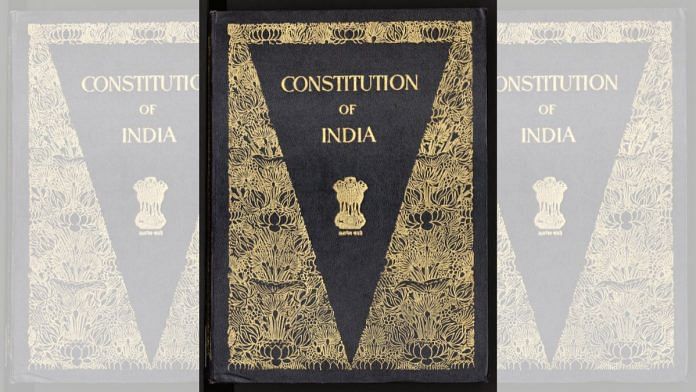In the ancient verses of the Rig and other vedas, we encounter the terms ‘Sanat Dharma‘ and ‘Pratham Dharma‘. ‘Pratham Dharma’ stands for fundamental duties like upholding the truth, honouring cosmic order, Rita; following the path of righteousness, Dharma; and engaging in sacred rituals, Yajna. Together, they form the bedrock of Sanatan Dharma, the timeless code that governs the universe. Embedded within this cosmic order is the human role, known as Manav Dharma. It outlines the duties humans must embrace. They offer a guide for leading a righteous life.
No distinction is made between two individuals in Manav Dharma. It recognises the fact that individuals with different beliefs are different from each other. However, it does not consider one faith tradition superior and the other inferior, or one as true and the other as false. The determination of truth and falsehood is based on universal principles, not faith.
Thus the general duty (samanya dharma), also known as samasik dharma, and sarvvarnik dharma, is the same for all humans. According to Manu, they are — steadfastness (drithi), forgiveness (kshama), self-control or restraint of the mind (dum), non-stealing (asteya), both external and internal purity (pavithrtha), control of the senses (indriy sanyam), constant pursuit of knowledge (dhi) and wisdom (buddhi), both higher and lower types of knowledge, truth (satya), and control over anger (akrodh).
These are universal human values. They are not just for Hindus but are fundamental values for all humans.
Those who are committed to universal moral values are all devoted followers of Sanatan Dharma. In this sense, the fundamental duties of citizens as described in Article 51(A) of the Constitution, which include the feeling of brotherhood towards all Indians are in line with Sanatan Dharma.
However, if an Indian wishes to impose fear, temptation, or pressure on other Indians, or tries to persuade them that their own faith is wrong and inferior, and adopting a certain religion is the only way to salvation, thus undermining the feeling of ‘Common Brotherhood’, then such an Indian cannot be called a follower of Sanatan Dharma.
Observance of universal duties (samanya dharma) is obligatory for all humans worldwide. Therefore, they are called contemporary duties (samaasik dharma). Beyond this, people in various countries, regions, and clans determine their own duties according to their profession, livelihood, field of work, goal, and discipline. It is the duty of the state to ensure that society adheres to its moral boundaries. This is known as the duty of the state (raj dharma).
Desiring to destroy someone’s faith (dharma) is violence. Eradicating that violence is the duty of the state. A king who does not follow the duty of the state is also a participant in sin.
Also read: We were India since Alexander’s time. Why drag the British into it?
Principles of dharma
Mahatma Gandhi referred to himself as a staunch Sanatani Hindu. According to him, a Hindu is one who believes in the following principles:
- The Vedas are from the beginning of creation and they are revered by all.
- Karma is inevitable and essential.
- Reincarnation is true.
- God is omnipresent.
- Each living being has a part of God within them, hence they are always pure. However, due to impurities in the mind, they may not realise this.
- Non-violence is the ultimate duty. Non-violence means a complete absence of hostility towards any living being. Holding hostility and aversion towards anyone is violence. The absence of violence is non-violence.
- Protecting cows is the duty of every Hindu.
Sanatan Dharma is not a government order. It is an investigation of truth or reflection. It delves into how humans can attain happiness and why they become unhappy. It is a wealth of knowledge, not a political command.
Buddha also occasionally referred to the religion he taught as Arya Dharma, Saddharma, and Sanatan Dharma.
Armed with the knowledge of Sanatan Dharma, various groups, communities, states, and countries have continued to establish their social systems and rules according to their respective traditions of lineage, territory, district, or state. There is diversity and variety among them, Jains, Buddhists, Sikhs, Arya Samajis, and Sanatani Hindus—all are considered followers of Sanatan Dharma.
Followers include worshippers of the formless, worshippers of the divine with form, idol worshippers, practitioners of non-dualism, Shaivites, Vaishnavites, Shaktas, and more.
The widespread observance of the comprehensive discipline of Sanatan Dharma in various forms in other countries, including now Greece, Afghanistan, China, and Iran, has been elaborated in the Mahabharata. At the same time, various forms of unrighteousness continue to be observed.
The practice of unrighteousness is the opposite of Sanatan Dharma. While unrighteousness may give temporary happiness, in the long run, it leads to sorrow. This is the experience of human history.
Rameshwar Mishra Pankaj is a historian and political scientist. Views are personal.
(Edited by Theres Sudeep)



